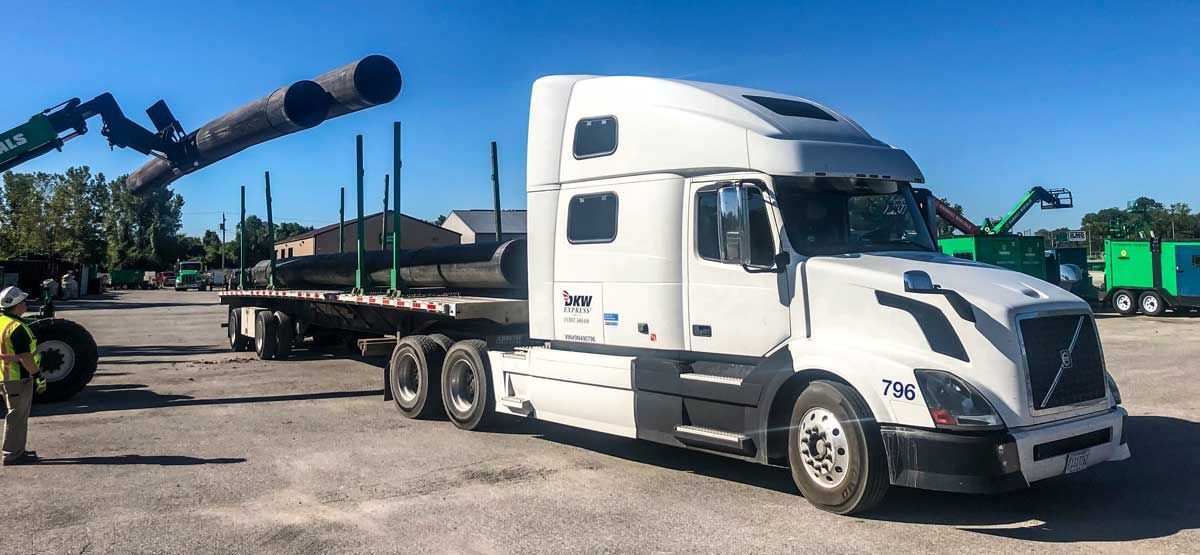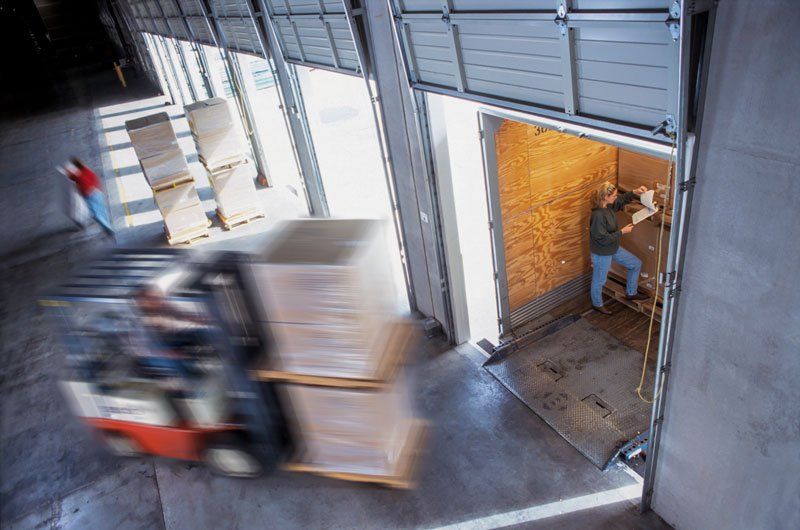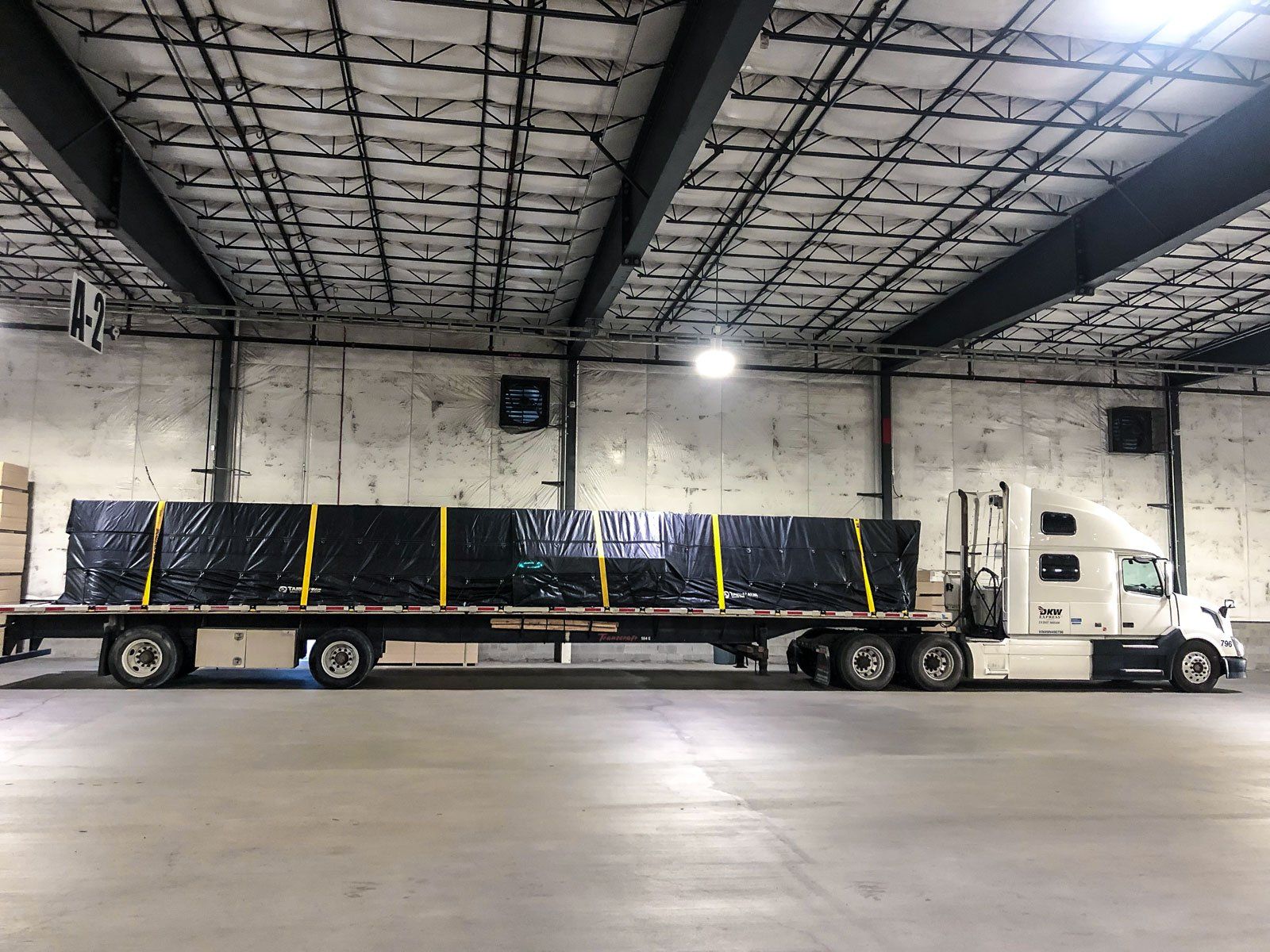Independent Dispatch Services For Owner Operators - DKW Express
Picking the right owner-operator no forced dispatch company doesn't have to be hard
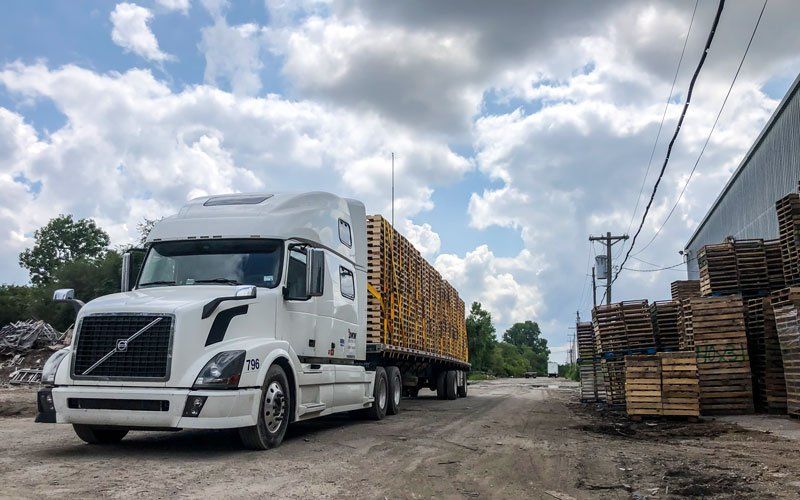
- What do Owner Operators Need to Do with Dispatch Services?
- How do dispatchers get loads?
- Do Owner-Operators Need Truck Dispatch Services?
- Do O/O need to have owned trailer?
- How to choose the right owner-operator dispatch company
- Make the right choice for your business

What is a Dispatch Services?
A truck dispatcher is responsible for managing freight on behalf of owner-operators and carriers. A dispatcher's job is to locate loads, connect with brokers, conduct negotiations, dispatch drivers, and finally set up their routes. Sometimes, dispatchers can also assist with back-office tasks like reviewing logs and tracking hours.
Freight dispatching services do not equal one another. Some dispatchers work solely on getting you the loads; others get you high-paying loads and offer IFTA filings and even accounting services for your small business. That, however, will come at an additional cost.
Some dispatchers go so far as to help you manage delays, maintain compliance with motor carriers, and improve your relationships with shippers. For each load they find, dispatchers receive a percentage of their earnings.
It is important to know that freight brokers and freight dispatchers can be different. A freight broker acts as an intermediary between the shipper or manufacturer (who wants their freight moved) & the carrier (who can transport it). Legally, the freight broker can represent both the shipper and the carrier at the same time.
However, they shouldn't have any personal investments in either party. On the other hand, the dispatcher is directly associated with a carrier and acts on their behalf only. Therefore, in reality, dispatchers cannot legally represent shippers or manufacturers.
What does a dispatcher do?
A freight dispatcher's goal is to find relevant, high-quality loads for clients. Once an owner-operator dispatcher agreement has been signed, the dispatcher will learn more about your operation and determine which loads are most suitable for your business.
Some dispatchers will use personal connections to locate loads. In many cases, dispatchers will use their connections to locate freight. Professional dispatchers use load boards to find loads just as self-dispatchers to locate the right freight.
Freight dispatchers often use the same load boards an owner-operator has access to to get their trucks loaded. They either post their clients' trucks to the boards, let the system find a match, or perform a search. All they need to do to search is enter the truck's details, including its type, special features, lanes, origin, and destination.
Most common dispatching services: Dry Van, Reefer, Flatbed

If you are an owner-operator, that means that you already have your semi-truck. However, quite a lot of owner-operators do not own their own tractor-trailers. Below we will cover the most common dispatching services for dry freight, refrigerated and specialized equipment. Some dispatching services will lease you a trailer or help you rent one if they do not have one available.
Dry Van Owner-Operator Dispatch Services
A dry van is a semi-trailer that has been enclosed completely to protect the shipment from the elements. Designed to carry palletized, boxed, or loose freight, dry vans aren't temperature-controlled (unlike refrigerated "reefer" units) and can't carry oversized shipments (unlike flatbed trailers).
Dry vans are also known as "dry van trailer" and "box trailer." They can be used to transport a variety of smaller-than-truckload (LTL), or truckload, shipment types. Your freight was probably transported on a dry van if you have ever shipped or received freight.
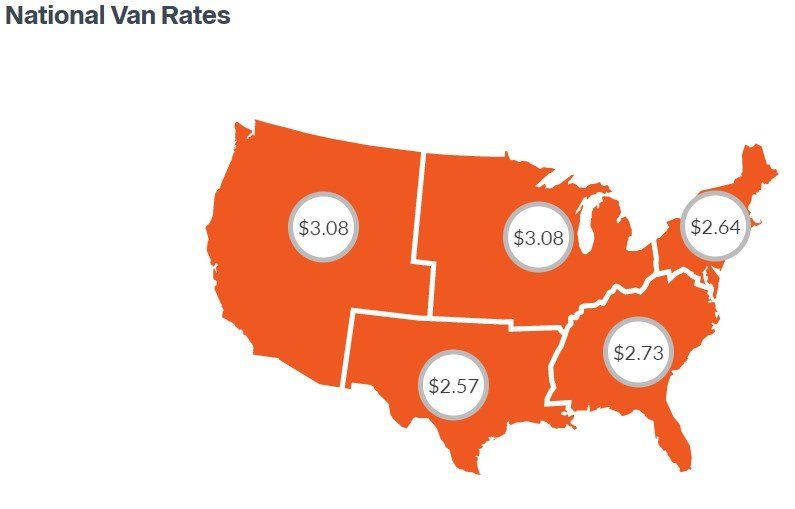
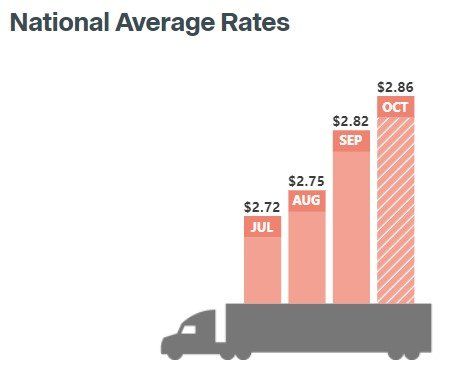
Dry van owner-operator dispatch services are the most common. However, hauling dry goods is not necessarily the best paying route. In addition, there are more dry van trailers on the road than any other type of trailer, making the competition for loads very tough.
The competitiveness of dry van freight makes things very difficult for dispatchers during low market conditions. You have to ensure that your dispatch services for owner-operators dispatchers are not taking care of too many trucks. While in a good market, a seasoned dispatcher can cover ten trucks before noon. When the market is low, he might not even cover all of them until late at night.
*Source: https://www.dat.com/industry-trends/trendlines/van/national-rates
Reefer Owner-Operator Dispatch Services
In trucking, a "reefer" is a refrigerated trailer that gets attached to a semi-truck to transport perishables and other temperature-sensitive goods. The original originator of the reefer was the ice cream industry in 1925. You can also use reefers to heat goods.
Reefer is shorthand for refrigeration. This truck is your semi-cab. The reefer is the trailer. A semi-pulling trailer that is refrigerated, called a "reefer truck," is used to transport perishable goods. These trailers are different from cooling vans which are only insulated and vented. What makes a reefer trailer unique? The active cooling system is part of reefers. You can therefore transport both refrigerated and frozen freight with reefers.
Temperature-adjusted reefers can also be used to transport heated goods. This is less common.
There are a few cooling methods that can be used to find reefers. For example, there are diesel-powered generators as well as cryogenic cooling. But, first, let's look closer at how trailer cooling works.
The closed system is the basis of Reefer units. A refrigerated trailer system works by removing heat and maintaining a constant temperature. They work by heating the air and moving it around. This is the core of my work.
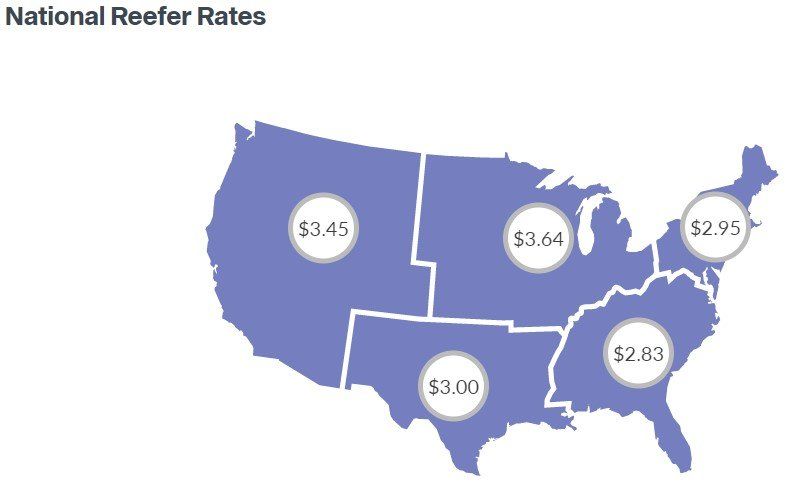
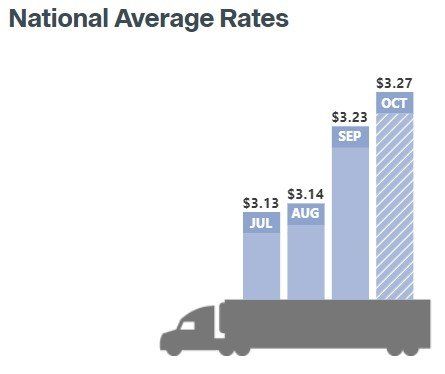
Reefer freight is 2nd most common freight. Most of the refrigerated freight that's being moved is frozen food items. However, during the summer months, extra freight might get transported via reefer trailers that would usually be transported in dry van trailers. Reefer freight usually pays very well, similar to flatbed or a bit more than flatbed freight.
However, the big thing to note here is the number of claims you will experience while hauling refrigerated freight. Perishable products go bad, and many times, drivers/carriers get the blame for it. Make sure that your insurance is set up properly to handle them.
Another thing to note is that reefer load delivery appointments are usually in the middle of the night. So while it is easy to get excited over great prices per mile, you should consider the fact that sometimes loads that would take a flatbed one day to deliver might spill over into the 2nd day. Waiting times at the delivery location can become ridiculously long if you are even a bit late to your appointment.
I want to mention one more thing since I think that it is incredibly important; lumpers. Midnight or early morning appointments are usually at distribution centers that require lumper fees. You should make sure that the company which provides your dispatching services has a night dispatch so that you can get unloaded without any issues. I, personally, had to sit at the receiver for an extra 24 hours before when my now ex dispatching services company did not pick up my calls until 8 AM (receiver closed at 6 AM).
*Source: https://www.dat.com/industry-trends/trendlines/reefer/national-rates
Flatbed Owner-Operator Dispatch Services
Flatbed trailers are large trailers with no roof or walls and are primarily built from steel, aluminum, or a combination of both. Most of the flatbeds getting pulled by semi-trucks are either 48' or 53' in length.
These trucks can transport oversized loads that would not fit within the walls of regular dry vans or reefers. Most flatbed drivers carry tarps with them, which come in various sizes, from 4' drops to 8' drops. Some drivers that do not want to drag tarps around convert their flatbeds to Conestogas. However, that limits the type of freight that they can haul due to space restrictions.
Forklifts and similar equipment make it easy for drivers to load the flatbed trucks quickly and efficiently. Flatbeds can be loaded from the side by a forklift, from the top by a crane, or like a regular trailer in the dock.
Flatbed trailers seem to be versatile, are one of the most popular trailers, and are a key player in the trucking business. The maximum weight varies by local restrictions as well as how much does the tractor itself weighs. Some super-light semi-trucks can haul over 50K lbs on a flatbed trailer without going over 80K lbs.
The most common max legal dimensions for a load that a flatbed trailer can haul are as follows:
- Length: 53', can go on a 48' and stick out 2' in the front and 3' in the back with red flags attached
- Width: 102' is the most common width for a regular flatbed, but 96' is also around still
- Height: Max height that you could carry without being scared is around 8'. Different flatbeds sit at different heights, so you should know what height yours is not to go over 13'6"
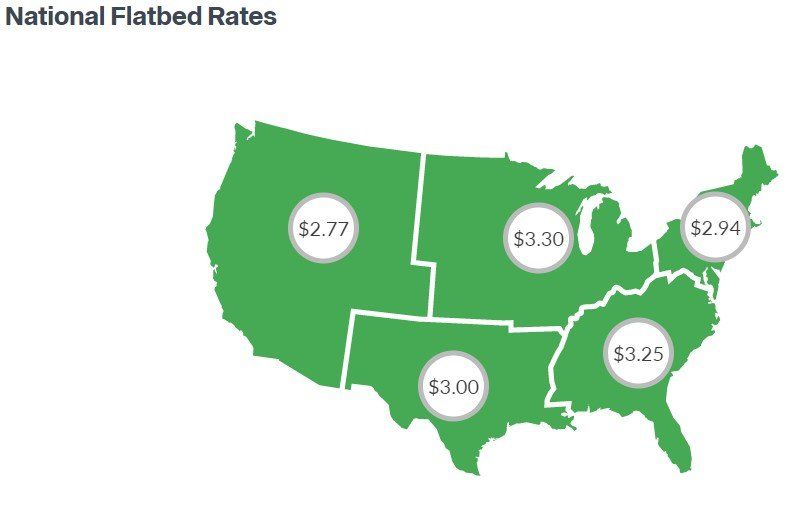
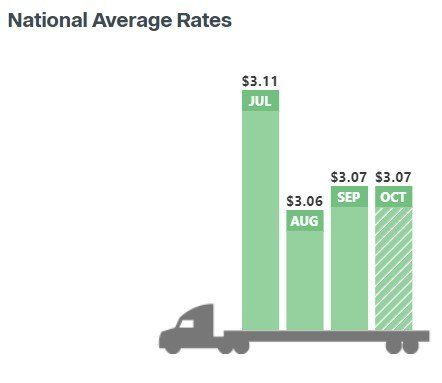
Flatbed owner-operator dispatch services are the most specialized. It takes quite a bit of knowledge to be able to dispatch a flatbed successfully. For instance, your dispatcher must consider the time that it might take you to tarp or untarp your load. In addition, load-securement is extremely important when hauling flatbed freight, and your dispatcher needs to understand that securing the load properly takes time.
Your dispatcher also should know how much your truck weighs with full tanks and avoid taking the freight that will put you over 80,000lbs. We all strongly dislike when brokers lie about the weight, but that's just part of the game in this industry. However, dispatcher being aware of weight and dimension limitations can save you from lost time and headaches.
It is not uncommon to see loads going for $6-$10/mile posted as regular loads on a load board. However, once your dispatch calls, he might be briefly told on the load being a 60' beam or being 108" in width, or even a high cube container. Knowing that you can only haul 53' of length, 102" width, and 8' tall loads without a permit can stop your dispatcher from sending you over and wasting your day.
The hottest markets for flatbeds are usually around the Midwest area. The best part of hauling flatbed loads is that it is specialized, and a lot of times, shippers and receivers load you very quickly since they need the product.
Flatbed owner-operators have to be very well trained, fit, and have a lot of common sense. That is the reason why there is a huge shortage of flatbed drivers. Furthermore, not many truck drivers like to get their hands dirty nowadays, even if it allows them to make the most money out of these three mentioned types of equipment.
Should Owner-Operators Use a Truck Dispatch Service?
There are many pros and cons to truck dispatch services. The biggest con is the price. For a task that you could perform on your own, you're giving away a substantial portion of your earnings to someone else.
You can also spend more time on your road because you don't have to worry about finding loads. This means that you could end up driving more loads and earning more if you don't have a quality system. The best truck dispatchers are skilled at negotiating and can talk to brokers with specific knowledge of markets and lanes. Freight dispatchers can often negotiate better rates for loads than individual owners-operators because they know that they will benefit from a higher rate.
However, there is a common misconception that dispatch services can find loads that you wouldn't be able to. This is often false. They have the same access to loads as you would if you searched the load boards on their behalf. In addition, they can search the load boards all day, while owners-operators must spend some time driving.
Good freight dispatchers can save you time and possibly get you lower rates. They also offer other services that can be helpful to owner-operators, especially when they are just starting. They can also help with:
- You must ensure that your motor carrier compliance is maintained.
- Maintain good relationships with shippers.
- Avoid unexpected delays while on the road.
- Assist with back-office tasks such as billing, collections, paperwork, and billing
Dispatch service is a good option if you are willing to lose some of your earnings for each load you send. On the other hand, Self-dispatching may be a better option if you prefer to keep all your earnings.
Self-Dispatching as an Owner-Operator
Owner-operators can find loads by following the same process as dispatchers, but you are finding loads yourself. A load board is essential to make it easy for you to place your truck and search loads. In addition, you should have loads updated every day on your load board, so you always have something to choose from. DAT is the only load board that fulfills all of these requirements.
DAT is a high-quality load board that allows you to self-dispatch. This means you have access to the largest freight marketplace anywhere and the ability to make sure you never miss the perfect cargo. However, freight dispatchers might try to convince people that all they need to find loads is to spend hours on a load board to do so.
DAT allows you to set up alerts whenever a load that matches your search criteria appears. This allows you to spend more time behind the wheel and not worry about missing loads.
A load board of high quality will provide you with the information you need to negotiate broker agreements. DAT's load boards, for example, provide information on market rates and lanes for each load based on real transactions. This means that you can always be prepared to negotiate the best rates.
Self-Dispatching Pros:
Although self-dispatching may not be for everyone, many semi-truck owner-operators find it to work well for their businesses. Self-dispatching requires that you are willing to spend time searching for freight. It is also important to be able to negotiate with brokers.
Self-dispatching saves money because you don't need to pay a dispatcher a percentage. In addition, Self-dispatching allows you to build relationships with manufacturers and shippers, which can be extremely valuable for your business.
Finally, Self-dispatching allows you to have complete control of your business. Giving someone else power over your work can be counterproductive because many owners choose to own their business.
Self-Dispatching Cons:
Self-dispatching requires you to look at the load-board like a hawk. If the market is very competitive, it will be extremely hard to book loads while driving or loading/unloading at the shipper/receiver.
You will need to have a computer, a very good internet connection, a scanner application, and a lot of patience when filling out broker set-up packets.
A lot of the brokers nowadays use easy to fill out semi-automated broker packets that are completely online. However, smaller brokers still do not have these systems set up, and filling out their packets might take you an hour.
You also will need to have your files handy and ready to be attached to emails. Also, let's not forget about checking broker MC numbers to ensure that your factoring company approves them before booking freight with them.
Choosing The Right Owner-Operator Dispatch Service or Self-Dispatch
When asking yourself which route to take, self-dispatch or hire independent dispatch services for owner-operators, you need to consider a few things as mentioned above:
- Are you comfortable staring at a computer screen for a long time?
- Are you quick with math? When negotiating with brokers, can you quickly figure out the dollar per mile versus the distance, including empty miles?
- Are you good with paperwork? Filling out 20+ pages of the carrier set up packets (average is much less nowadays, though).
- Are you comfortable with uploading paperwork to your factoring company so that you can get paid?
- Do you like talking on the phone, or do you like to be left alone and want to get instructions to pick up and deliver?
If you have answered yes to most of the questions above, then you possibly have what it takes to dispatch yourself and save some money in the process. However, if you are doubtful about your dispatching abilities, then it might be more beneficial in the long run for you to hire an independent owner-operator dispatch service.
If self-dispatching, there is no better option than DAT when selecting the right load board. DAT gives you access to the best freight marketplace and quality customer support that will help you navigate the load board.
There are many trade-offs for working with a dispatcher versus dispatching yourself. Each route has its own perks and negatives. Whichever way you choose to go with, will depend on your needs, your organizational skills, wish to communicate with brokers, etc.
First, you should list the exact services you are looking for from your freight driver. For example, do you only need help with loading loads? Are you looking for help with customer relations and back-office tasks as well? It's a good idea to know what you are looking for so you can start your search.
You can then start asking for recommendations from trusted people. Ask your friends and family about the dispatch services they use. Also, it would help if you tried to find reviews online from actual users. This can give you an idea of the quality of a dispatch company's service.
Last but not least, you must consider the cost. What is the dispatch charge per load? Is that enough to cover all costs associated with running your business? Are there any minimum charges you can make per load to cover those accumulated costs?
These numbers should be available before you speak to dispatch services to ensure that you don't sign any contract in your best interests.

